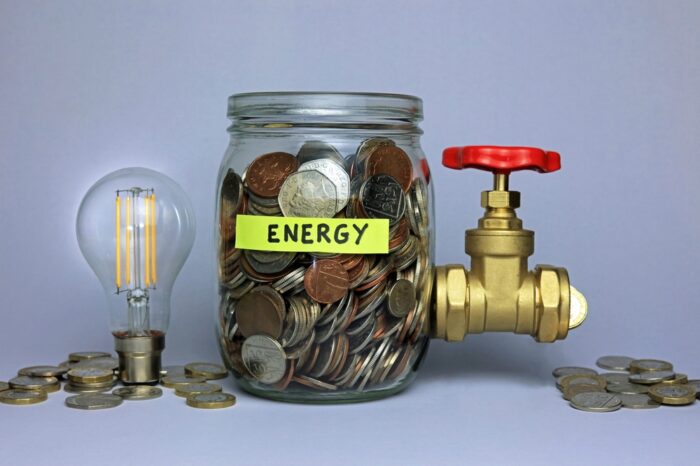Fixed daily charges applied to all energy bills are to be reviewed, in a new consultation launched by the regulator, Ofgem.
It comes as many consumer organisations have criticised the fees, which have risen 65% since April 2019, according to figures from National Energy Action (NEA).
The standing charge is a fixed daily amount paid by households to energy providers. It covers the cost of connecting gas and electricity but it has no correlation to the amount of energy a person uses.
It is set at 53p per day for electricity and 30p for gas, under the Energy Price Cap, although it varies depending on where people live, the type of energy they receive, and how they pay.
Peter Smith, spokesperson for the NEA, said: “For years, there has been growing alarm about increases to standing charges. Many people rightly feel they are now too high and the current approach is unfair.
“How can it be right that someone who can’t afford any energy for their home, still pays a daily charge that is the same or more than someone in a mansion? An overhaul of the system is long overdue.”
Providers ‘not obliged’ to have a standing charge
Ofgem said energy companies are not obliged to have a standing charge and can charge less than the amount set out in the price cap.
In a consultation launched today, it is asking charities, consumer groups, businesses, suppliers, and billpayers for their views on the standing charge to be sent in by 19 January 2024 along with proposals on alternative options.
It comes as energy debt is now at a five-year high, according to data from Uswitch.
When the issue was previously looked at, it found that if the standing charge was scrapped, suppliers would still have to cover the cost of energy connection and this would result in higher prices for units of energy.
There is also the issue that the standing charge varies across the country, to reflect the different costs of energy connection.
Customers who pay via prepayment meters also tend to pay more for the standing charge. They are currently protected until March 2024 under the Energy Price Guarantee, which states they will not pay more than a person paying by direct debit. A replacement for this scheme is currently being worked on by Ofgem.
Director for markets at Ofgem, Tim Jarvis, said: “We know that standing charges have provoked a huge amount of debate in recent months and with wider cost-of-living pressures meaning customers will continue to struggle with bills, now is the right time to look at this again.
“The standing charge is covered by the price cap, which puts a ceiling on what suppliers can set it. They’re also under no obligation to have a standing charge and can charge less than what is set out in the price cap.
“However, it’s a complex issue and while an upfront set fee to cover a suppliers’ fixed costs works for some, it doesn’t work for others. Equally, spreading the costs differently might help some but our previous analysis has found it can also penalise some really vulnerable households.
“So, however we proceed, there is a difficult balance to be struck, which is why it is important as many as people as possible respond to our call for input with their experiences of it, how it affects them and what the alternatives to it could be.”
‘The UK Government could cut standing charges to zero’
Peter Smith added: “Standing charges aren’t just a matter for the energy suppliers or the energy regulator. How much people pay is often due to government policy. If there was the political will to prioritise these issues in the Autumn Statement, the UK Government could cut standing charges to zero for prepayment customers this winter.
“This would particularly benefit those who are more likely to have missed out on support last winter like the £400 discount Energy Bill Support Scheme and who are much more likely to in debt or struggling now to afford their bills.
“In the longer term, more policies should be paid out of taxation and Ofgem should be encouraging suppliers to reflect a customer’s usage when they recover these charges, or a customer’s payment method, which fuels they use, or their ability to pay.”

